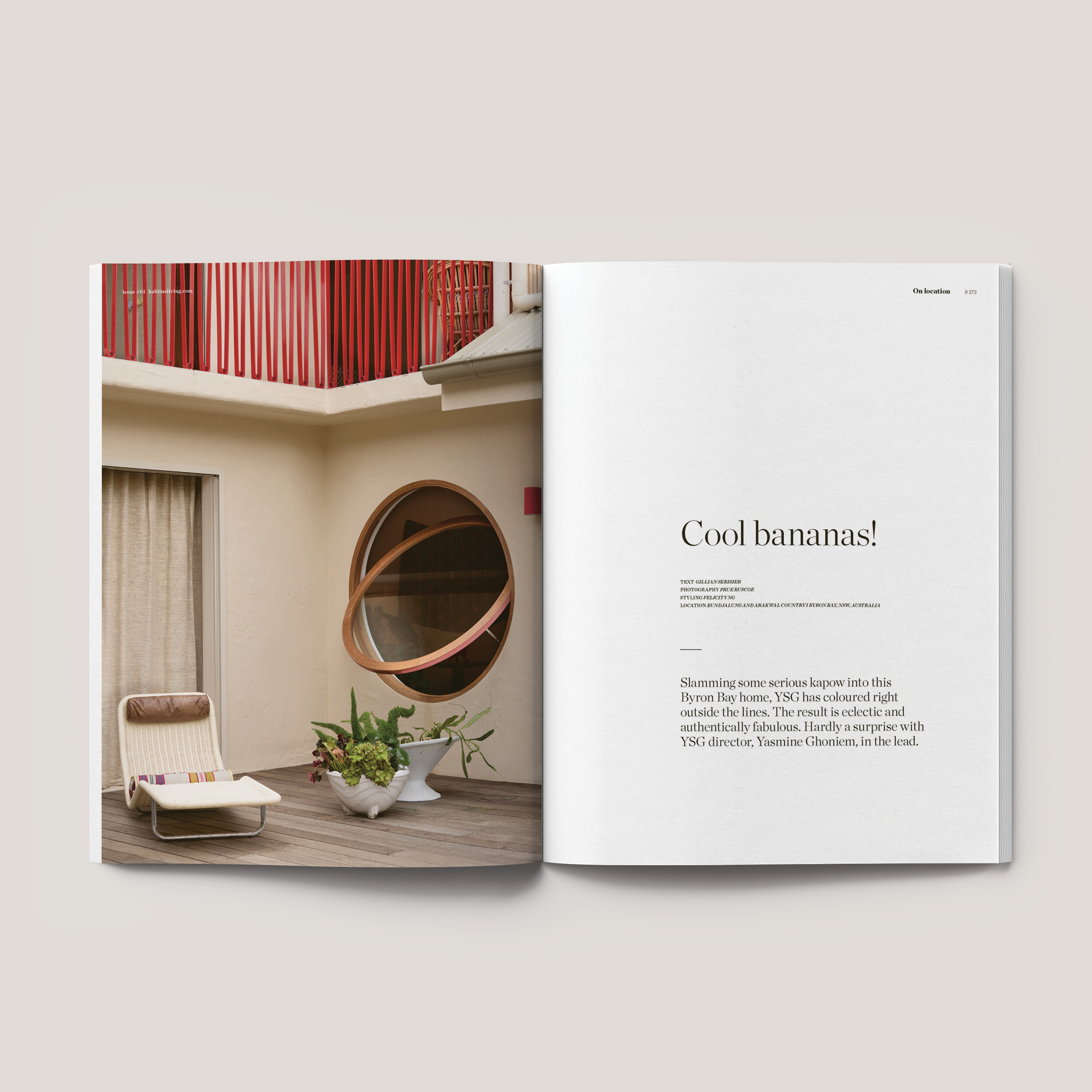In the latest issue of Habitus magazine we meet artist Lisa Cooper and talk about the inspiration she has found throughout her career in Architect Adolf Loos. One aspect we found particularly interesting – but which we didn’t get to talk about in the mag – is Lisa’s ‘video portraiture’.
So we thought we’d catch up with her to tell us a little more about her work and her video portraiture exhibition – The Crucible Project…
Read the Inspired article in Issue 11 of Habitus magazine, out now. Available in good book stores and newsagents and on the iPhone and iPad here, or contact us to subscribe or buy back issues.
Habitusliving.com: What exactly is Video Portraiture?
Lisa Cooper: My practice identifies video-portraiture as a unique sub-genre in the field and histories of both portraiture and video art; portraiture, for its quality of direct-address, autonomy and universality: video art for its contemporary relevance and immediacy.
Video Documentation: Anthony Geernaert
I have adopted the term video-portrait to articulate a point of difference between video art in general and my own practice. Video-Portrait refers to a distinct approach to the production and installation of individual, isolated portraits of the human form as pictorial screen presences.
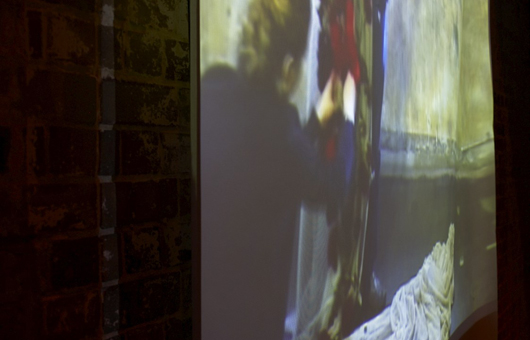
Deciding upon the term ‘video-portraiture’ as an appropriate description of the processes incorporated within The Crucible Project was the result of a study of the genre of portraiture, and a realisation of the metaphysical potential of images in projected light.
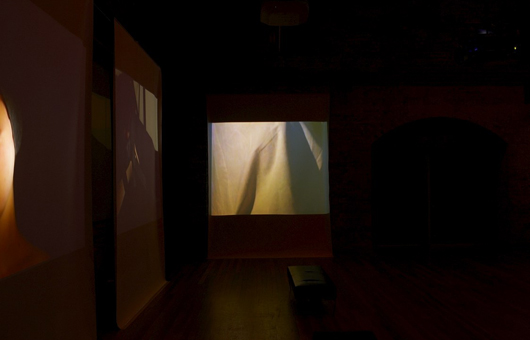
The Crucible Project is linked to a history of portraiture and by extension to a history of painting. Equivalence can be found in the application of stasis-movement, tensions-paradoxes and motion-emotion. In painting the expressive and the conceptual are manifest through representational marks where colour, light and texture have as their support surface canvas and wall (and beholder)…
Do you use many different mediums to express your art? Could you tell us a bit about them?
In my practice I favour some materials over others. The predominance of materials is often connected to what I am trying to image. Materials, mediums, things have powerful analogical and metaphorical imperatives and connotations.
In connection with an idea or motivation – for work – the medium is mostly dictated by the intrinsic qualities of the material. Because I am drawn somewhat repetitiously to imaging or counterfeiting emotional states – another kettle of fish – the materials that I choose are also somewhat repetitious or recurrent.
Could you describe your studio/working space to us?
My studio is difficult to enter at the moment. Every surface, including the floor, is taken up with ‘pressed’ red roses. I have been working on a new video project working with flora and have decided to create assemblages with the flowers (after the composition is constructed and filmed), large scale works in ‘pressed’ flowers, a kind of pictorial continuance of their ‘lives’.
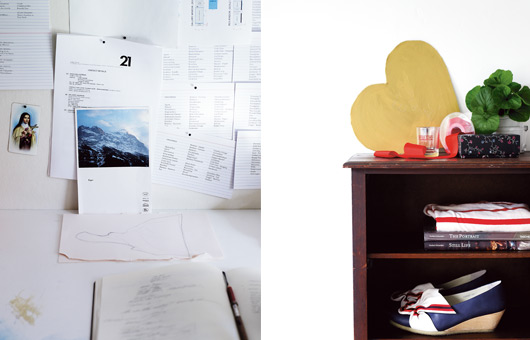
My studio is a room and sunroom in my home. I can start early, and finish late…
I always have meetings at the café, to get me out of the space occasionally. On long days my partner calls me ‘little Edie’ (see Grey Gardens documentary).
Is there a particular work that stands out as particularly memorable/a favorite?
The opening of [the Sydney Theatre Company production] War of the Roses was a pretty incredible moment. My psychic (Pam Bradbury, amazing) had said to me ‘it will all be gold’ [the future] with great emphasis… I sat, absolutely motionless for about an hour and a half, watching a deluge of gold (foil) fall without a break over the head of Cate Blanchett wearing my crown. It was the new and immense context for a piece that I had worked on for so long in isolation that was the amazing part.
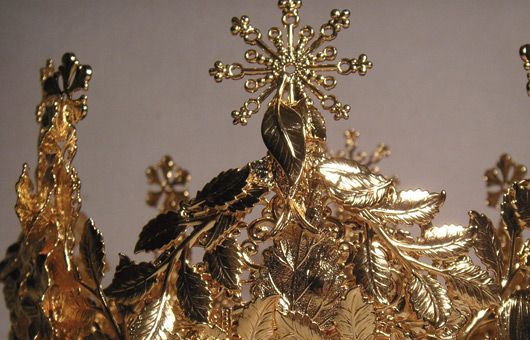
That is what I like the most, when my work is away from the context of me. By far the most exciting work is the one I am yet to make.
From where do you draw inspiration?
Truly, from everywhere, all that I remember and all that I can imagine, all that I’ve seen read heard and felt.
Could you tell us about any upcoming exhibitions/works?
A collection of gold ‘wings’ made up of thousands of tiny leaves.
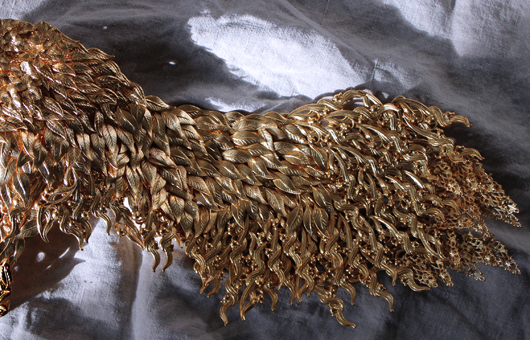
A new video project: ‘trade’ the filmed construction of elaborate and over-scaled flower compositions (that link to the symbolism of still life painting from the Italian Renaissance)
Flower compositions in ‘pressed’ still life.
I am currently looking for spaces to show these new works.
Pick up issue 11 of Habitus now to read more about this inspiring artist.
Lisa Cooper
doctorcooper.com.au
